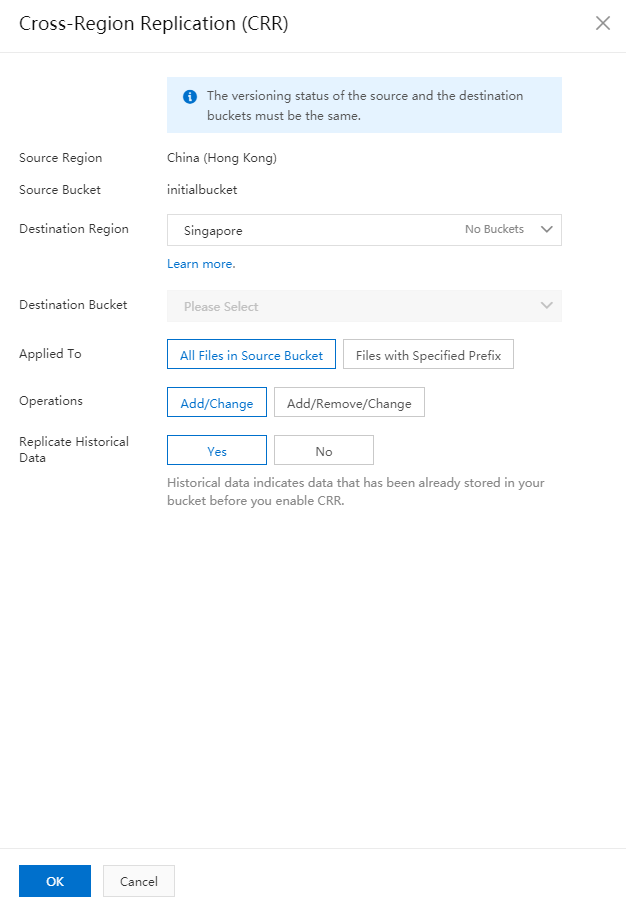Latency is inversely proportional to the level of concealment. The C data is present, and the connection has been established, but there is a significant delay in receiving the client request response and showing what the user has requested. When moving data from source to destination, there are instant dropouts. Latency is the time difference between the data transmitter and the data receiver. Furthermore, when responding to a user query over the cloud, this latency is amplified. There are a variety of factors that contribute to potential delays in fulfilling the user's request.
Imagine that you have services deployed in United States data centers, and you have users across the globe. In this topology, the users from United States would be able to consume your services with a normal (if not good) performance, but the users from across the globe would have to face a poor response time. The problem is not with the server (not even with the load that the web application is under) but because of the delay in the network traffic. Requests of the users and the responses of your web apps must travel the physical wires to reach a destination ¨C let us ignore the OSI model and its processing operations for the data packets.
That is why, cloud-native solutions need to be designed with latency decrease in the mind. There are several options available in which developers can decrease the latency of their solutions, including hybrid clouds, global redundancy and replication of services, caching of the data, CDN and other products. I will enlist most of the products on Alibaba Cloud and show how they can be used in these scenarios.
The prevalent idea implanted by the cloud providers is to minimize the distance from the service provider to their customer, by providing compute and hosting services on demand. Lesser the distance, lower will be the latency. Host your data in the west if you have major customer requests from there, and always create a replication as needed. Similarly, host service in the east if more of the business traffic is coming from that region. The only idea is to know the regional consumption of your customers and distribute your data and service origins accordingly. And there is no stopping from hosting the solution in both regions separately and then using a load balancer to automatically forward the traffic to the closest end point.
Therefore, the ultimate solution which is cost effective as well as efficient for the companies is to architect the solution for the cloud services and let the cloud orchestrators oversee how to provide the best services to your customers.
Henceforth, this article is aimed to discuss the major solutions provided by Alibaba Cloud ensuring the low latency and instantaneous transfer and response for your customers. However, for scoping the article and not to miss the focal point, we intend to walk through and highlight the functional insights of the services from the following aspects:
Ease of configuration and the pricing model.
Impact of service on the latency and response time.
Management overhead and complexity added by the service.
Based on these, I would recommend how to architect your solutions so that you can best utilize the cloud platform and deploy your services where they are most needed.
Computation Services
Alibaba Cloud offers a wide range of powerful cloud level computing solutions which include Elastic Compute Service and GPU based VMs, Container Service for Kubernetes, and other auto scaling and load balancing solutions. All these computing services ensure high computing with powerful and secure virtual cloud servers to accommodate all sort of high computation requirements. Furthermore, the global deployment and high availability of data for your product. Atop of it, to fulfil the requirements of distributed architecture and their regional deployment Alibaba offers the feasibility of 20 international geographical locations which further extends in different regions and zones to manage distributed customer requests.
Using the Alibaba Cloud ECS, you can deploy a single instance in less than 10 minutes on the cloud. You can increase the performance by deploying the service using multiple ECS instances. To further expand the orchestration, you can use the Container Service for Kubernetes and deploy your instances using Kubernetes. Kubernetes as an engine would manage how to deploy the solutions, and as in my other article I discussed, you can use Serverless Kubernetes clusters to add nodes as the demand grows and delete them when they are no longer needed. You can create clusters with up to 100 compute nodes, and scale them down to zero automatically.
Also, you can always use the built-in Auto Scaling services to scale the instances as the need grows.
Online Web Based Solutions
Sometimes the deployment is for web applications, and not complete solutions. For example, a simple blog owner might not require deploying a runtime-driven web application. They might only deploy a web application with PHP or Node.js. On Alibaba Cloud, you can use Simple Application Server for this scenario. The problem with Simple Application Server is that it is a single server and does not provide replication. In this case, Enterprise Distributed Application Service might come in handy when you have to deploy your microservices in a distributed fashion.
Databases and Storage Solutions
Database services provided by Alibaba Cloud support ultra-low latency and data synchronization between two nodes. Per the metrics, it allows for up to 3884 TPS and 15500 QPS transfer between the US West (Silicon Valley) and China East (Hangzhou) nodes with an average network latency of only 175ms. You can host your own databases on the cloud using either Hybrid Cloud model, or you can create ECS instances on the cloud to host the database engines. Once again, the latency gain would be provided once you replicate the data across multiple regions on the cloud.
On the other hand, there comes ApsaraDB for Alibaba Cloud which provides a whole number of highly cost-effective and efficient database services which ensure scalability, multi-layer data read/write operations, and low latent high performant data solutions while being distributed in nature following master-slave architectural design. You can explore the benefits of using ApsaraDB for RDS here, and see how different options can help you decrease the cost of the solution, increase the productivity and scale at the any time.
Apart from the databases, you can also use the same features in a storage service. Alibaba Cloud OSS provides support for data replication and migration to multiple regions on the globe. The feature is called Cross-Region Replication.

Like shown, you can replicate the data to two different regions. It provides a better latency, and a good availability in case of a data center down time.
Alibaba Cloud CDN supports global data replication and caching in minutes. Alibaba Cloud CDN supports HTTP and HTTPS based traffic for your solutions, and automatically caches the resources. This is a great way to improve the web site acceleration.
Other Services
Normally, you would need to use other services in your solutions too, such as authentication, logging and data and metrics collection services. Alibaba Cloud offers PaaS and SaaS based services with specified SLAs that you can use, such as the RAM service is highly available and replicated around the globe to provide access to your engineers to provision cloud resources from anywhere on the globe. RAM should be used instead of your own authentication systems for Alibaba Cloud admin and management suites, as RAM is a free service and provides all the services that you might develop yourself ¨C of course you can create your own solutions, but hey, this would cost you more!
If you are using logging services on the cloud, then it would be useful to use Log Service to store the application logs in your subscription. Log Service is a cloud-native logging service, that provides back up options with OSS and a high throughput for your applications to submit logs and metrics for data and business intelligence purposes.
In the end, it all falls in the hands of the architects and engineers who design and deploy the solutions on the cloud. Providing a better response to your customers should be a high priority in the design phase. After all, the cloud platform is considered to use the cloud resources on demand as needed.
This article shares an explanation of what a CDN is and four reasons for enterprises to choose Alibaba Cloud CDN.
The traditional CDN industry was characterized by a few dominant players before the advent of cloud computing. An increasing number of enterprises need CDNs to handle traffic peaks driven by e-commerce, mobile apps, videos, and live streaming. This has been the driving force behind the transformation of the CDN industry. The development of cloud-based CDNs has taken off in recent years. This has benefited the industry through more flexible resource configuration, more robust large-scale data processing capabilities, enhanced price transparency and affordability, and better utilization of cloud computing platforms. CDNs can be combined with cloud computing services for further benefits in resource configuration and large-scale data processing as well as reduced storage costs. For example, cloud computing can solve the high latency and lag problems typical in live streaming. Additionally, cloud computing platforms provide a wide range of supporting services, such as data mining and elastic scaling. The CDN landscape has already changed a great deal.
Since 2009, Alibaba Cloud has invested heavily in building an intelligent cloud ecosystem that includes CDN services. In Gartner's "Market Guide for CDN Services" published in 2019, Alibaba Cloud was named a global service provider because of its global service capabilities and product technology advantages. This signals Alibaba Cloud's ability to provide access services in business and consumer hubs across five continents.
Alibaba Cloud Content Delivery Network (CDN) provides more than 2,800 edge nodes to serve over 300,000 customers worldwide, with a bandwidth reserve of 200 Tbit/s. It accelerates millions of domain names and processes billions of refresh operations every day. To date, it has distributed a total of over 166.7 EB of data. Alibaba Cloud CDN has been used to support the Double 11 Global Shopping Festival for over 11 years. It was also instrumental for livestreaming the 2018 Russia World Cup. The experience gained from these applications allowed Alibaba Cloud CDN to develop sophisticated solutions and comprehensive emergency response plans tailored to scenarios with high video concurrency. Alibaba Cloud CDN provides targeted solutions for a variety of scenarios, such as video-on-demand, livestreaming, image transmission, HTTPS transmission, large file transfer, player SDK, and content moderation. This helps maximize customer profits.
A scalable and high-performance content delivery service for accelerated distribution of content to users across the globe. You can use content delivery network (CDN) to deliver content to users from the nodes that are nearest to them, accelerating the response to user requests and increasing the response rate. CDN also resolves the delivery latency problem that is usually caused by distribution, bandwidth, and server performance issues. CDN has been applied in multiple scenarios, including site acceleration, on-demand streaming, and live streaming.
This topic uses an example to illustrate the architecture of how Alibaba Cloud CDN works.
After you activate the Alibaba Cloud Content Delivery Network (CDN) service to accelerate content delivery, you can configure Alibaba Cloud CDN based on business requirements in the console or by calling API operations. This topic describes the layout of the Alibaba Cloud CDN console, operations that you can perform in the console, and features that you can configure in the console.
How Fintechs Capitalize on Big Data in Today's Digital World

2,593 posts | 792 followers
FollowAlibaba Clouder - March 27, 2020
afzaalvirgoboy - June 17, 2020
淘系技术 - November 17, 2020
Alibaba Clouder - August 16, 2021
Alibaba Clouder - November 22, 2018
Ashish-MVP - April 8, 2025

2,593 posts | 792 followers
Follow CDN(Alibaba Cloud CDN)
CDN(Alibaba Cloud CDN)
A scalable and high-performance content delivery service for accelerated distribution of content to users across the globe
Learn MoreMore Posts by Alibaba Clouder